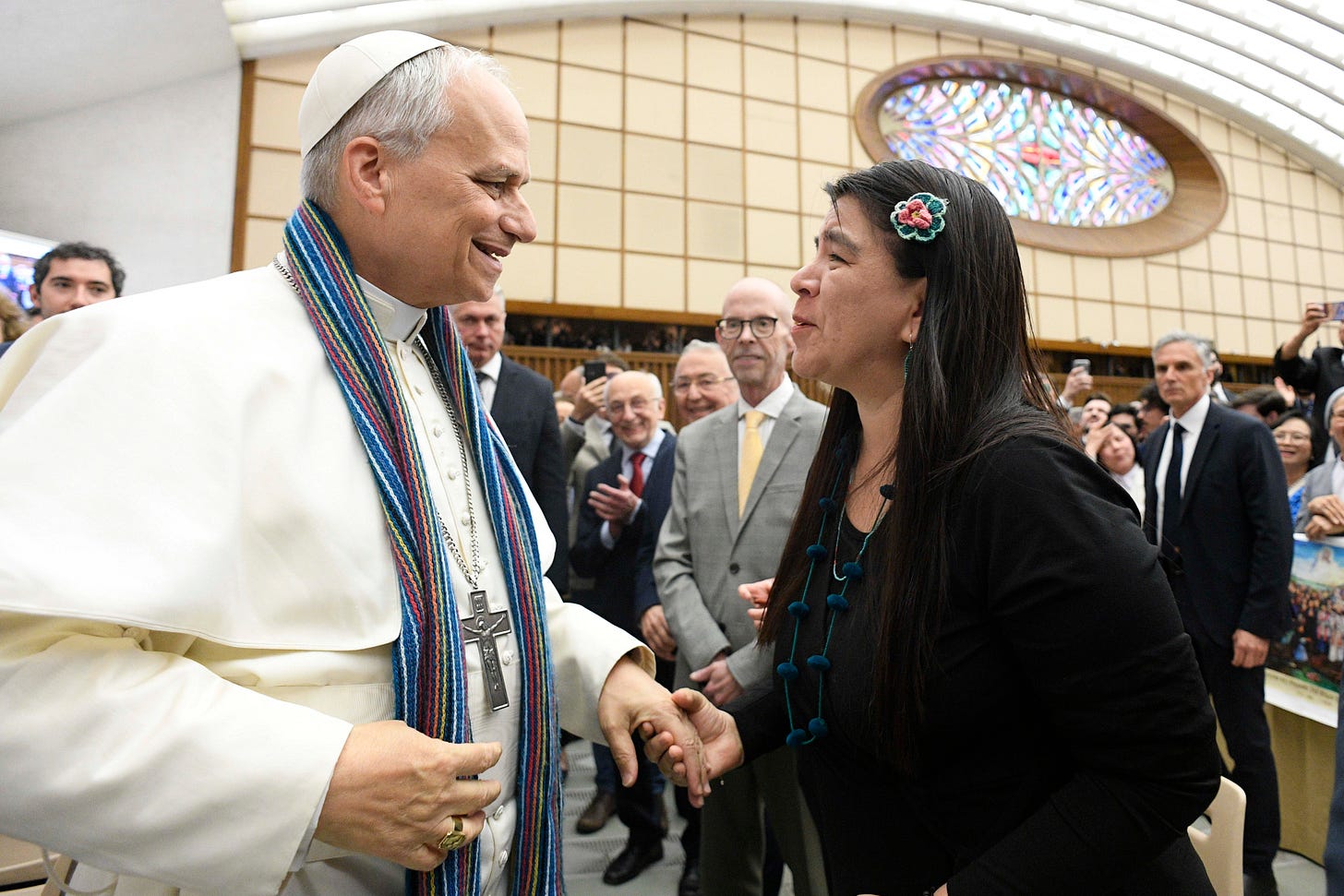Pope Leo Pledges Zero Tolerance for Abuse In Catholic Church
The pontiff praised the role of journalists for their role in exposing abuse.

This story has been updated.
By Gary Gately
Pope Leo XIV stressed that the Catholic Church must not tolerate any form of abuse, sexual or otherwise, and praised journalists for their work in exposing it, saying their “fight for justice is also the Church’s fight.”
Pope Leo’s first public comments about the clergy sexual abuse scandal came in a written message read Friday night in Lima, Peru, at the premier of a play that dramatizes the work of an investigative journalist who exposed sexual, physical and spiritual abuses at the now-suppressed Peru-based lay Catholic group Sodalitium Christianae Vitae (Christian Life Society).
In his message, Pope Leo underscored the “urgent need to establish a culture of prevention throughout the Church that does not tolerate any form of abuse—neither of power nor of authority, nor of conscience or spiritual, nor of sex.”
"This culture,” the pontiff added, “will only be authentic if it is born of active vigilance, of transparent processes and sincere listening to those who have been hurt. For this, we need journalists."
Paola Ugaz, the journalist featured in the play “Proyecto Ugaz,” and Sodalitium victim Pedro Salinas have faced years of criminal and civil litigation as well as death threats and online attacks for their reporting on Sodalitium.
Leo, the first U.S. pope, wrote that the play “gives voice and face to a pain silenced for too long,” adding: “This work is not just theater: it is memory, denunciation, and above all, an act of justice. The victims of the extinct spiritual family of the Sodalitium and the journalists who have accompanied them – with courage, patience, and fidelity to the truth — illuminate the wounded but hopeful face of the Church.”
The 69-year-old pontiff, who spent two decades in Peru as missionary priest and Bishop Robert F. Prevost, wrote that “prevention and care are not a pastoral strategy; they are the heart of the Gospel.”
Quoting Pope Francis’ 2018 “Letter to the People of God,” Leo said in his message that to protect minors and vulnerable adults and to support abuse victims, the Church must undergo a “profound ecclesial conversion,” which “is not rhetoric, but a concrete path of humility, truth, and reparation.”
Monsignor Jordi Bertomeu, one of the Vatican investigators sent by Pope Francis to investigate the group, sat next to Ugaz on the stage and read Leo’s message.
Survivors of Sodalitium’s abuse told The Associated Press in May that beginning in 2018, then-Bishop Prevost met with them, took their claims seriously when others did not, got the Vatican involved and arranged a meeting with Pope Francis that resulted in the late pope’s suppressing the group a week before his death in April.
Pope Leo exhorted Peruvian authorities and the citizens to protect journalists “who inform with integrity and courage,” adding that a free press “is an inalienable common good” and that “those who exercise this vocation with conscience cannot have their voice extinguished by petty interests or by fear of the truth.”
He told the victims and journalists attending the play: “Your struggle for justice is also the struggle of the Church [because] a faith that does not touch the wounds of the human body and soul is a faith that has not yet known the Gospel….
“I dare to say with pastoral affection: Do not be afraid. With your work, you can be artisans of peace, unity, and social dialogue. Be sowers of light amidst the shadows…. Where a journalist is silenced, the democratic soul of a country is weakened.”
Broadening his message beyond Peru, Leo wrote: “In this time of deep institutional and social tensions, defending free and ethical journalism is not only an act of justice, but a duty of all those who yearn for a solid and participatory democracy. The culture of encounter is not built with empty speeches or manipulated stories, but with facts narrated with objectivity, rigor, respect and courage.”
On May 8, the day of Pope Leo’s election, the Survivors Network of those Abused by Priests, a support group for victims of clergy abuse, wrote in a letter to him: “Why are tens of thousands of clerics, known by you and your fellow bishops around the world to have raped and sexually assaulted children and the vulnerable, still in ministry today? Why can any bishop in the world, including you, cover up instances of rape and transfer offenders to new assignments where they are likely to abuse again?”
The group called for a “universal zero-tolerance law enacted into canon law, removing all abusers and complicit officials”; a “reparations fund” supported by the Church to provide victims financial restitution, education and psychological care; and “acts of restitution” by the Church, including memorials and official public acknowledgements of abuse.


